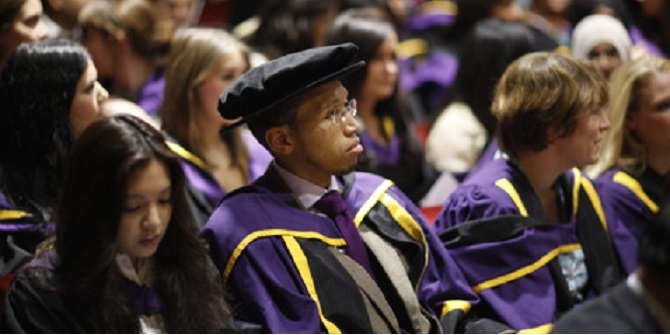At our PhD panel in November 2021, we heard from speakers now working in four career sectors – the UK public sector, academia, consultancy and an international organisation. Their different trajectories reveal experiences of career development which will interest anyone laying the foundations of post PhD progression.
In our ‘PhD Journeys’ series, we focus on the experiences of each of the panellists – this blog explores the career trajectory of Astrid Hampe-Nathaniel…
Astrid is a Visiting Fellow at LSE and a Consultant at ICF in the team responsible for European Social Policy.
ICF is a global consultancy firm, providing insights to governments and commercial clients, founded in the USA in the 1960s as the Inner-City Fund to finance minority-owned businesses.
During our panel, Astrid recalled her excitement at beginning her PhD, seeing it as a luxurious time with lots of freedom to read. Exacerbated by the impact of the Covid-19 pandemic, however, towards the end she had feelings of loneliness and isolation with a lack of immediate feedback, which left Astrid longing for something more dynamic, with more recognition, more collaboration and more human interaction.
Career-shaping criteria
The autumn before submitting her PhD, Astrid started thinking ahead, creating a list of job search criteria, including types of companies that interested her, her central values and motivations and desirable aspects in a job. She applied for everything that fitted these criteria; applying widely to a “target list” generated through online research and by going to lots of policy fair events to learn about organisations. She also made use of LinkedIn and job alert emails, as well as creating protected time for job hunting and refining her approach based on the responses received from employers. It was important for Astrid to return to her PhD work after job hunting through autumn, but she says, “I was actually able to work better in the second half of my final year because I knew I had secured a job for the often-unknown post-PhD time”.
A dream opportunity, but a lifestyle shock
For Astrid, the final year of her PhD was intense, but she describes the offer from ICF as a “dream opportunity” to be providing research services for public sector clients. Now based where she wants to be in London, Astrid is working on projects for the European Commission, working across two teams facilitating policy implementation and policy evaluation.
Initially, transitioning between lifestyles was a “shock”: Astrid’s new work style was very different from the PhD. Full-time work has a different temporal schedule from the free working culture of an LSE PhD – there’s often closer surveillance, more reporting back, and shorter communication channels. However, Astrid’s disappointment in losing her PhD autonomy is balanced by the increased interaction, teamwork and recognition she finds in her role at ICF. Astrid says she’s happy with the move and that “a huge advantage” is that she feels she’s making an impact by informing policy making in a more direct way.
Listen to yourself and keep exploring
If you’re considering similar pathways, Astrid suggests signing up for the Eurobrussels newsletter, which is undoubtedly the best weekly newsletter for all policy, public affairs, international organisation jobs in Brussels and beyond (she found her ICF job through them!). At the hiring stage, Astrid recommends negotiating to ensure you are getting a good deal, and once in an organisation you can continue to adjust – for example, you may find yourself in the right company but in the wrong team. With experience and finding out what skills you enjoy, you can then move around internally or generate new contacts. By conducting some pro-active outreach, Astrid has started working more with the research team and often interacts with academics, finding an “intermediate sweet spot” between academia and consulting.
Overall, Astrid says: keep exploring, learning, and moving along; listen to yourself and adjust if something doesn’t feel right.
With thanks to all our contributors to the PhD Journeys series – Astrid Hampe-Nathaniel, Jaskiran Kaur Bhogal, Jun Yu and Anne Irfan.
For more support with planning your next steps after your PhD, book an appointment with Catherine Reynolds.





